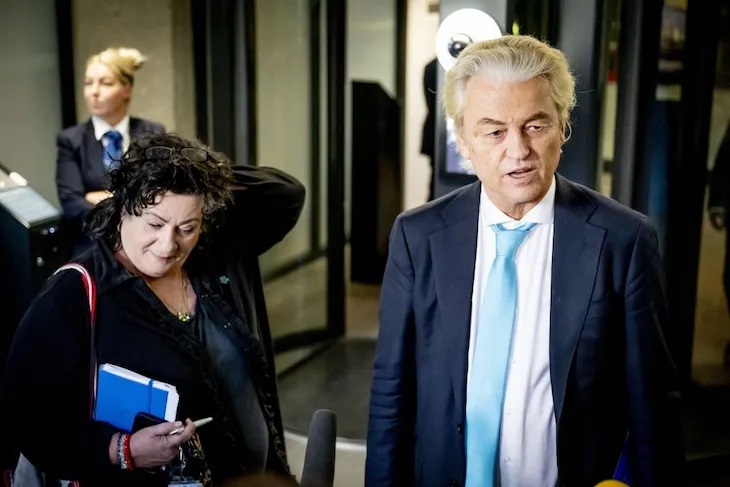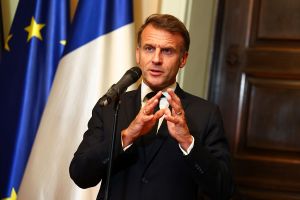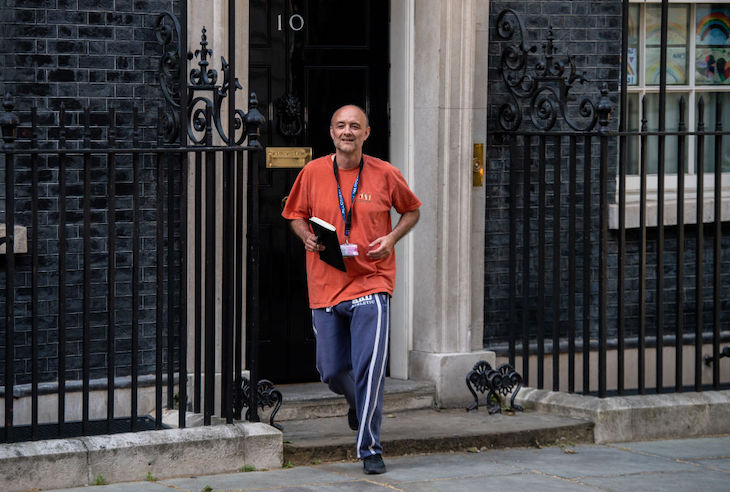“We are really by far the biggest winner this evening,” said Geert Wilders, leader of the Dutch far-right Party for Freedom (PVV), when the European election exit polls were published last week.
But although the Netherlands was first to go to the polls — with strong indications that the far right would be victorious — his “win” fell short of the storming result of Marine Le Pen’s National Rally, which has sparked a political earthquake in France.
Wilders, an anti-Islam, anti-immigration politician, surprised everyone in the country, including himself, when his PVV became the largest political party in the Netherlands in November. A man who has lived with 24/7 security for two decades is currently putting together a four-party, right-wing coalition government with an experimental “business” structure and former spy chief Dick Schoof as the next prime minister.
Despite (or perhaps because of) his criminal record for his comments about Dutch Moroccans, Wilders has been dominating the polls for months. His party still managed to gain five seats out of thirty-one in the European Parliament, a record result for the PVV. But, unlike in France, the Netherlands has seen a lean to the right rather than a landslide.
First of all, Wilders came second to the green-left-labor alliance, which won eight seats to his six. Secondly, the far-right vote in the Netherlands has increased, but only slightly. As Arjan Noorlander, a political correspondent for the current affairs program Nieuwsuur pointed out on election night: “the pro-European vote has won: about two-thirds of the Dutch voted for a party that is emphatically for European cooperation.”
The Dutch far-right has long been deeply Eurosceptic. Wilders for years advocated for “Nexit” — following the example of Brexit. But this April he shifted his approach to advocating for “change from within.” He backed Le Pen’s idea of uniting with the Italian prime minister Giorgia Meloni to form a European super-group of the radical right. Last week, Wilders invited the international press to a campaign event in the Hague, where he urged his voters to not boycott the European election and vote for his party. In the end, just over half of his supporters did.
It’s unclear what Wilders’s changed strategy in Europe will mean. “It could, in the long term, go both ways,” said Léonie de Jonge, the author of The Success and Failure of Right-Wing Populist Parties in the Benelux Countries. “On the one hand, we might say that it helps Wilders: the far right did well in France and Germany, so the far-right voice will sound louder in the European Parliament. On the other hand, it could complicate things. For instance, the new cabinet wants quite far reaching opt-outs when it comes to immigration. But other countries will also want such opt-outs. That will inevitably lead to friction between far-right leaders.”
The next Dutch government’s manifesto is hugely dependent on Europe: it wants to opt-out from the bloc’s new migration pact in order to stem immigration. It also wants laxer agricultural pollution rules and lower future fiscal contributions. But the European radical right also tends to be nativist and this could complicate matters. Why would the French support Dutch farmers being given more latitude on spreading manure, for instance, if this gives them a competitive advantage over French farmers?
In the Netherlands though what this week’s results show most clearly is the fragmented nature of politics, in a country where unpopular lockdowns, government scandals and an asylum shelter and housing crisis have severely eroded faith in politicians.
The popularity of established parties has continued to fall, especially the Christian Democratic Appeal (CDA), which has traditionally helped keep the self-interested Dutch “trader” spirit in check. By comparison, the nativist Farmer Citizen Movement (BBB) won two seats and the New Social Contract gained one. Both of these parties are offshoots of the CDA and both are in Wilders’ new coalition. The pro-Europe party Volt, meanwhile, won its first two seats.
For years, nobody wanted to work with Wilders, whose policies included a “head rag tax” and who called Dutch democracy a “fake parliament.” Then Dilan Yeşilgöz-Zegerius, the head of the People’s Party for Freedom and Democracy (VVD) opened the door to working with him last fall— leading Wilders to promise to respect the constitution and put his anti-Islam stance “on ice.”
After his subsequent election win, Wilders may have failed to win the confidence of his parliamentary colleagues to become Dutch prime minister. But as this European vote demonstrates, he is not keen to go back into the cold.
This article was originally published on The Spectator’s UK website.


























Leave a Reply